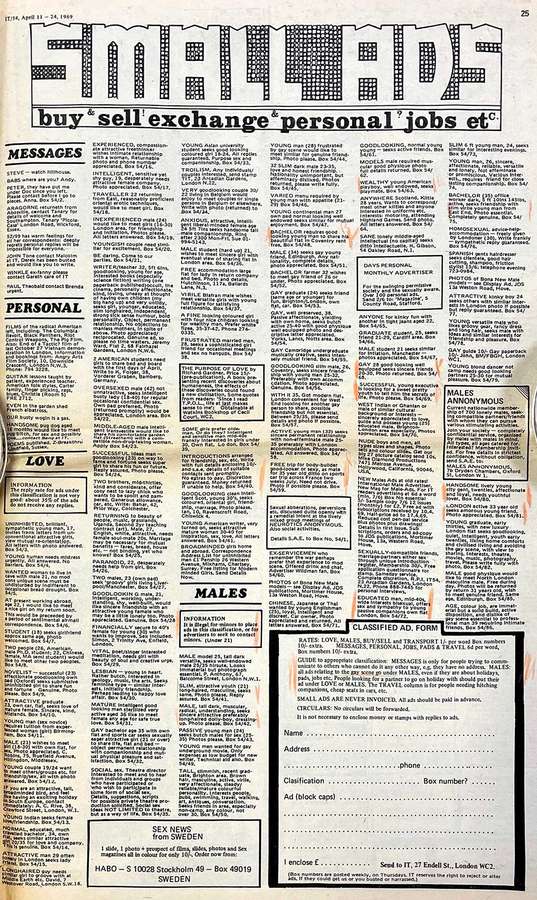On 8 June, I had the pleasure of attending Proud, a powerful production by the Pride Theatre Productions, led by project leader Alfie James. This organisation is a new theatre group 'committed to exploring LGBTQ+ narratives. Passionate about discovering unheard voices within the community.'
This captivating play brings to life the story of the first London Pride March in 1972, seen through the eyes of family and friends determined to challenge unjust laws and social stigma. Inspired by the 1969 Stonewall Riots and the first American Pride march in 1970, this historic demonstration saw between 300 and 1,000 people march from Oxford Street to Hyde Park – an event that looked very different from the large-scale, rainbow-filled celebrations we see today.
Funded through a six-month community project supported by the Heritage Lottery Fund, the performance was a poignant reminder of the courage and defiance that fuelled the early LGBTQ+ rights movement in the UK. These themes were reflected in the play's storylines around coming of age, acceptance, chosen family and community.

Placards used in Proud.
Exploring history through collaboration
The National Archives proudly partnered with this project by hosting a document workshop that examined the origins of the UK’s first Pride March. Drawing on our collections, we asked: what can government records reveal about this community-driven protest?
At first glance, not much! The voices of activists are more vividly preserved in community archives like the Bishopsgate Institute, which the theatre group also visited.
But our records tell a different, equally vital story: they show what campaigners were fighting against. Organised by the Gay Liberation Front, these early Pride parades focused on political goals. From ongoing arrests for same-sex acts to the surveillance of gay classified advertisements, our records demonstrate the systemic obstacles Pride sought to dismantle.
Pride and prejudice in the archives
During the workshop, my colleague Giorgia and I, presented a curated selection of records reflecting key themes such as migration, gender identity, policing, censorship, workplace discrimination, and visibility.

The cast of proud at a document workshop at The National Archives.
Participants examined the 1957 Wolfenden Report, a milestone document recommending partial decriminalisation of homosexuality. They explored records of the early gay rights campaign organisation the Homosexual Law Reform Society, including their 1966 petition and meeting with Home Secretary Roy Jenkins, which pushed for the Sexual Offences Act 1967 a year later.
High-profile cases, such as April Ashley’s marriage annulment and the prosecution of Gay News, demonstrated the ways in which gender and sexuality were policed through the courts but also ignited public discourse and heightened visibility. Participants engaged with related photographs, newspapers and court records to understand more. Many of these records are now uncomfortable to view, they show the harsh reality LGBTQ+ people and their loved ones faced; but they also help us understand what pushed activists to fight so hard.

Same sex classified adverts were subject to police scrutiny, leading to a high-profile court case against the International Times in 1969, not long before this first Pride march. Catalogue reference: DPP 2/4670.
The personal journeys of cultural icons such as Elton John and Freddie Mercury further illustrated the struggle for acceptance; neither were public about their sexuality at the time. Workshop attendees were excited to viewed related documents, including Elton’s official name change and Freddie’s naturalisation certificate, showing different sides of their identities.
The document display had a supportive atmosphere of learning and discovery. The group described their visit as a 'wonderful, positive day' that they 'gained so much from' and 'invaluable' to understanding the attitudes of the time.

THIS CHANGE OF NAME DEED (intended to be enrolled by the Central Office) made this 8th day of December 1971 By me the undersigned ELTON HERCULES JOHN of 14 ABBOTTS DRIVE, WENTWORTH, SURREY now or lately called REGINALD KENNETH DWIGHT a citizen of the United Kingdom and Colonies by BIRTH...
1. I absolutely and entirely renounce relinquish and abandon the use of my said former name of REGINALD KENNETH DWIGHT and assume adopt and determine to take and use from the date hereof the name of ELTON HERCULES JOHN in substitution for my former name of REGINALD KENNETH DWIGHT
Elton John change of name from Reginald Dwight by deed poll. Catalogue reference: J 18/458
On the stage
Months of development led to the staging of Proud, which depicted key moments preceding the first London Pride March – particularly the candlelit vigil at Highbury Fields, where the actors read aloud the demands of the Gay Liberation Front. Many of these demands remain unmet both in the UK and globally. The play carefully highlighted the over-policing of gay and bisexual men and its profound impact on individual people's lives.
The performance brought together personal stories, moments from the archives and activist quotes. One line from the play captured the activist spirt of the times, 'Gay is good. Gay is angry.' Pride parades were an important way of reclaiming sexuality and gender differences as positive, but also a way of pushing for real change. This play perfectly captured that.
Thank you to everyone who worked so hard to tell this story. Lookout for the associated education resource, coming soon!

The cast of Proud in rehearsals.

